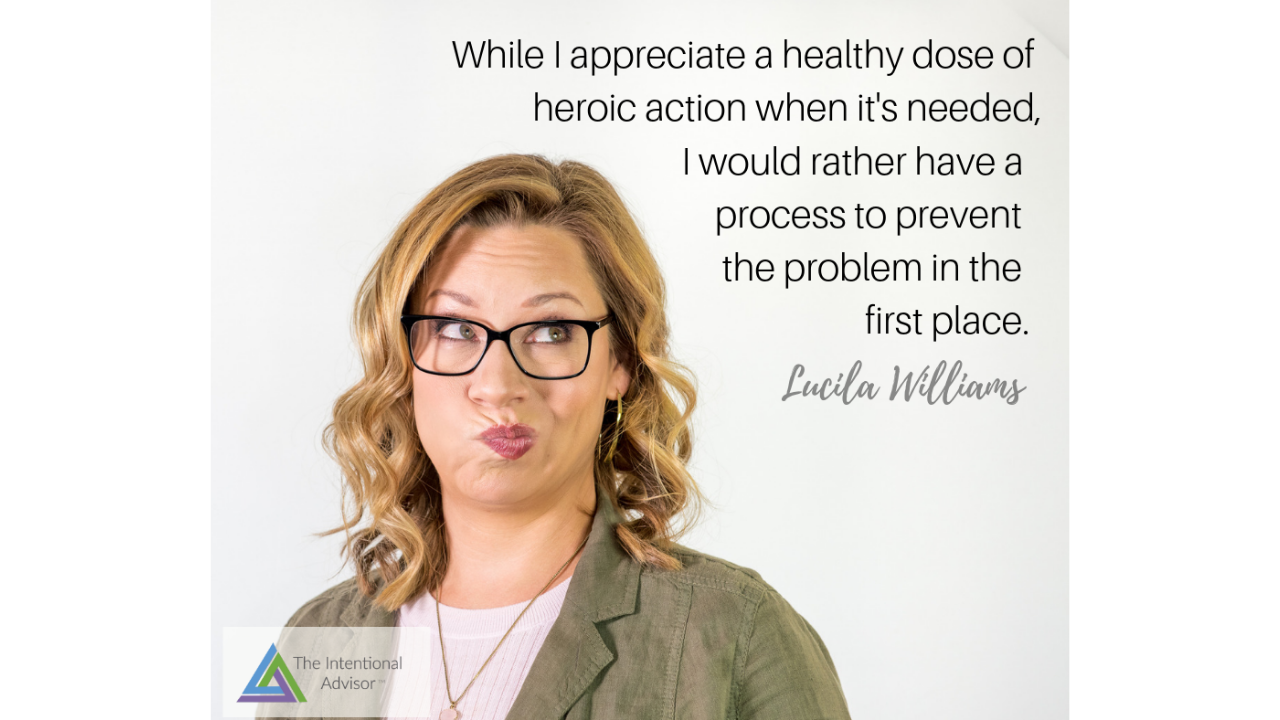I'LL TAKE A SOLID PROCESS OVER HEROIC ACTION ANY DAY!
Apr 01, 2019

Have you ever had someone come to you after the $hit hit the fan and regale you with a tale of their heroic action to fix the problem?
It goes something like this:
-The client called and told me that (x) didn't happen
-I immediately got so-and-so on the phone
-And he sent me to so-and-so
-We escalated it all the way to the top
-And now it's going to get fixed
-I'll call the client and let them know we went to bat for them!
It is all taken care of. Good news, right!?
Maybe not.
While I appreciate a healthy dose of heroic action when it's needed, I would so much rather have a process to prevent the problem in the first place.
When the $hit hits the fan in our practice, we jump to action and then immediately ask ourselves how we could have prevented the problem in the first place. We ask ourselves:
-Is there a process that we could implement that would have caught this issue earlier or prevented it all together?
-Is there a process in place now that we didn't follow in this instance?
-Is this just one of those things that is so far out of the norm that no standard process could have prevented the problem?
Most of the time we find that either we didn't follow our own process or we can build a process to catch the problem early. Occasionally, the stars misalign and there is nothing we could have done.
So, while I appreciate heroic action from my team, I will take a solid process over heroic action any day!
With Purpose,
-Lucila
How about you? Do you feel like you are running a process-driven practice? Or is your team in reactive mode most of the time?
We would love to hear your challenges and see if we can help you create a process to prevent them!
Come join the conversation in the advisor-only TIA Mastermind Group!


